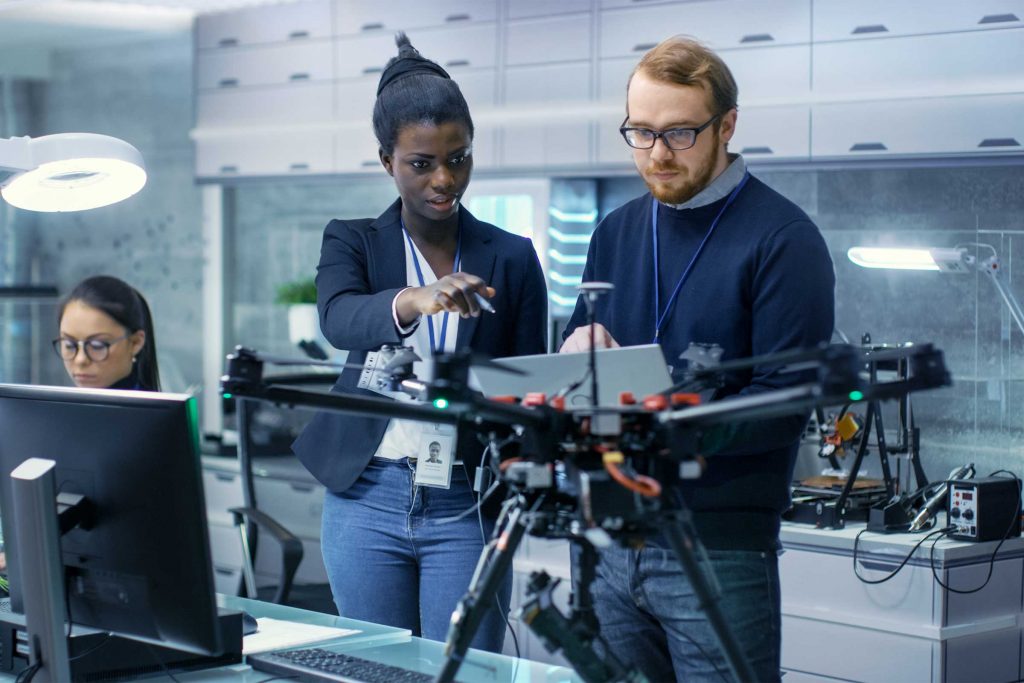You want a fulfilling – and sustainable – career. How can you achieve that? The answer is ongoing skill development. In a word, upskilling.
Upskilling refers to learning new skills to improve your performance – and possibilities – in your current career. Continual skill development is a necessity in our changing world of work. But there’s also a lot in it for you.
For instance, upskilling could make you more secure in your role. After all, if you’re always staying at the cutting edge of your industry, learning the latest skills and knowledge, your employer will recognise your value. You’ll be the one driving innovation and performance.
Upskilling could also mean you move on – and up – from your current job. More skills, newer perspective, extra qualifications – precisely the things that make a candidate stand out when applying for a job.
We’ve compiled the ultimate guide to give you the information and inspiration to start your upskilling journey.
We’ll cover:
- Reasons to upskill
- What is upskilling? And what is reskilling?
- Upskilling digital skills
- Human-centric skills
- An upskilling success story
Reasons to upskill

So, why would you do it once you know what upskilling is? Good question. In some respects, there are as many answers to that question as people are looking to upskill. After all, everyone’s career journey is unique.
However, several aspects of upskilling are relevant to pretty much anyone. We’ve identified the top five reasons why upskilling is essential.
- Job security
- Promotion
- New opportunities
- Getting a raise
- Job satisfaction
From futureproofing your current role to having a more fulfilling working life, upskilling has the potential to make a real difference to your career.
The good news is that there are several ways that you can upskill with postgraduate study, including:
So upskilling can be a small step – a short course to immediately add value to your role, with a specific skill under your belt. Or it could be a longer course of study, to delve a bit deeper. (Did you know you can complete a graduate certificate in as little as six months? Fact.)
And, of course, given that upskilling is a part of lifelong learning, your steps can all add up. One course of study can lead to another. Knowledge complementing skills. Skills developed to put knowledge into action.
Read more about the top five reasons to upskill.
What is upskilling? And what is reskilling?

Upskilling has a counterpart. Another term that is similar but different. Reskilling. You may have heard of that one too and wondered: What is the difference between upskilling and reskilling?
Well, they are distinct concepts and have separate goals attached to them.
Put simply, upskilling is about learning new skills to improve your performance – and possibilities – in your current career. You’re building on your existing knowledge base to keep yourself at the cutting edge of your industry. Making yourself invaluable to your employer.
Reskilling, on the other hand, refers to learning new skills to move into a completely new occupation. That could be because a changing workplace means your role might become automated, and you must find a way to futureproof your career. Or it could be that you want to change your life and pursue a new path. Either way, you’ll be looking at reskilling.
Both upskilling and reskilling are worth considering, depending on where you want to take your career. And with either route, there are ways to build on your previous study – often with credit – so you can get a head start on your next move.
Upskilling digital skills

Our lives intersect with digital technology from the moment we wake up to when our heads hit the pillow. What does that mean for the workplace? Well, it means digital skills are in demand.
UNESCO defines digital skills as “a range of abilities to use digital devices, communication applications, and networks to access and manage information. They enable people to create and share digital content, communicate and collaborate, and solve problems for effective and creative self-fulfillment in life, learning, work, and social activities at large.”
Which means they are useful in almost any industry. Digital skills range from basic IT capabilities to expertise with cutting-edge technologies like artificial intelligence and machine learning. This means that when it comes to upskilling, digital skills can benefit everyone – from closing your current skills gap in your job to moving into another role that is driving digital innovation.
Of course, if you invest in skill development, focusing on the digital skills that will help futureproof your career makes sense.
Find out which digital skills are in demand – and how you can get them.
Human-centric skills

Digital skills are important tools to have when upskilling, but do you know what is arguably even more important?
Being a human.
A lot of automation, machine learning and artificial intelligence is happening in the global economy. Those innovations are changing how we work, consume, and interact. The flipside is that employers are increasingly focused on what machines can’t do.
Machines lack the shared social experiences we acquire through our interactions with others. So it’s only humans that have specific employability skills, including:
- active listening
- adaptability
- critical thinking
- emotional intelligence
- empathy
You’ll be at the forefront of the future workforce by developing these skills – the things that require creativity, collaboration, and connection.
Because there are some things that robots just can’t do!
Discover more about human-centric skills.
An upskilling success story

So what does upskilling actually look like in the workplace? What does it feel like when you have taken the step to upskill with postgraduate study – and secured a new role as a result? One that fulfills you professionally, that recognises the skills you already have and that gives you an extra spring in your step when you go to work each day?
Ask Kathy Talbot.
Kathy has been a teacher for almost 20 years. She’s taught students from preschool through to Year 10. And loved every minute of it. Kathy knows the unique joys of helping children have that ‘light bulb’ moment. Imparting knowledge and seeing students respond, grow, reach their conclusions, push their boundaries and develop their thinking.
However, being in the education sector, Kathy saw an area of need. So she decided to shift her career to answer it. It didn’t mean leaving behind anything that made her love being a teacher. It meant building on them to add another string to her bow – and another way to help students grow.
She enhanced her employability skills with a postgraduate degree and moved into teacher librarianship.
Read more about Kathy’s upskilling journey.
When you’re ready to upskill, we’re ready
Upskilling is easy with Charles Sturt University. All our postgraduate courses are available online – so you can enhance your skills while you work. And as Australia’s most experienced online university, you know you’re in good hands.
So, what’s next?
- Search our courses to find one that fits your upskilling goals
- Download our online study guide to get the lowdown on digital learning
- Get in touch to chat through your options.


You must be logged in to post a comment.